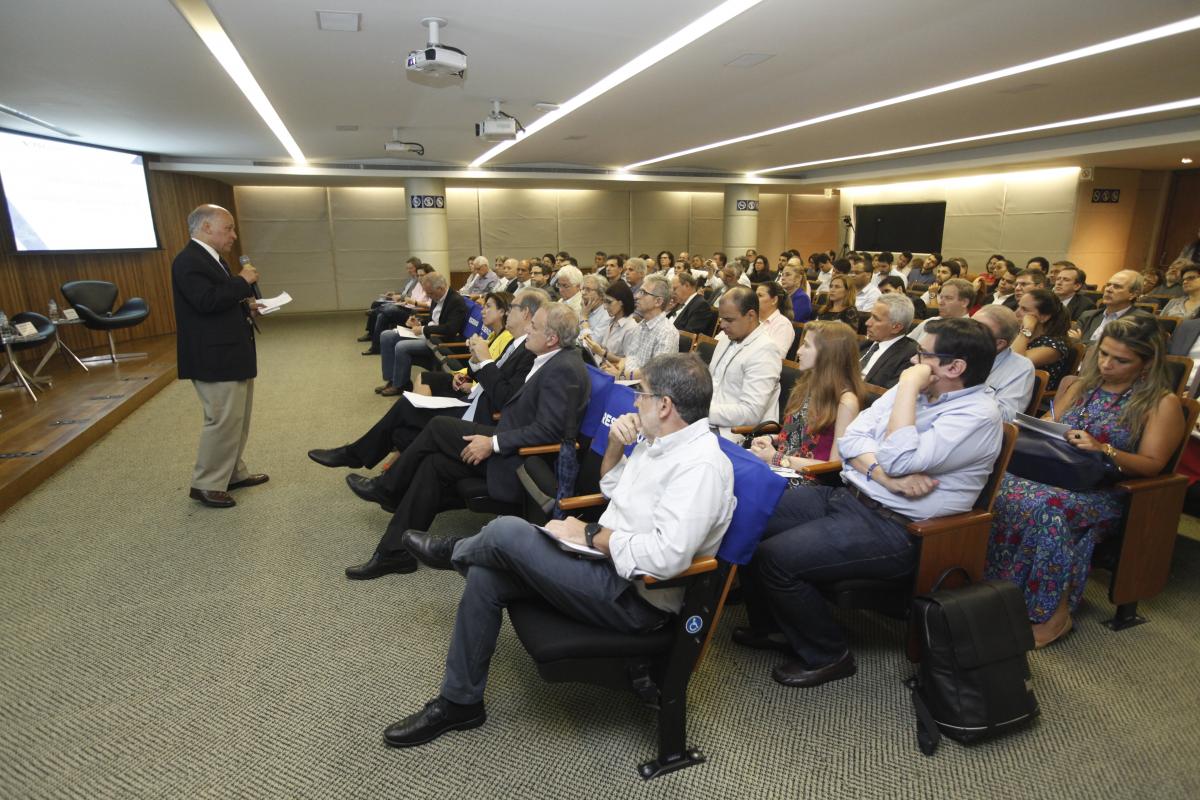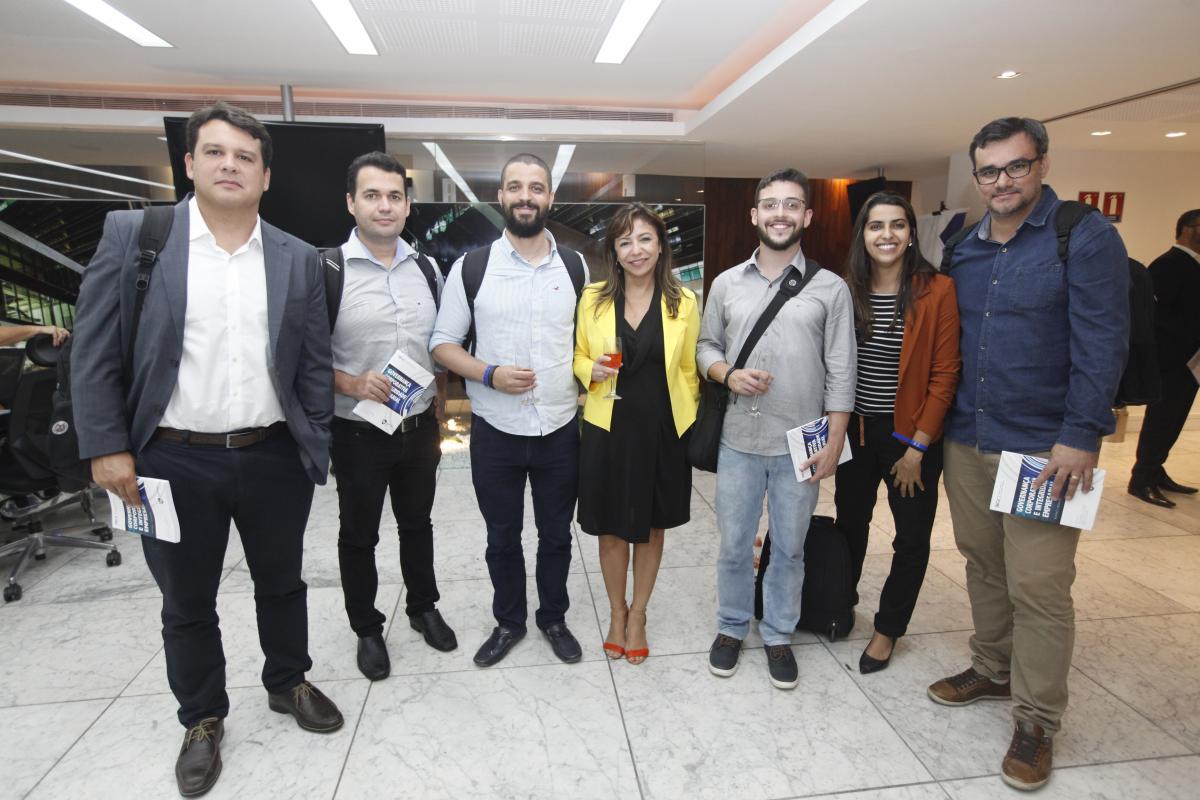Panel by the Alumni EBAPE Network and IBGC, brought new perspectives on Corporate Governance and integrity in companies

Topics such as transparency and accountability, integrity, the human factor vs corporate failures, investors’ and civil society’s responsibilities were part of the discussions during the panel Corporate Governance and Business Integrity. The panel was brought by the Alumni EBAPE Network in partnership with the Brazilian Corporate Governance Institute (IBGC) on February 22 at the headquarters of the Fundação Getúlio Vargas.
In the event, the debate focused on assessing, based on different viewpoints, the contribution of best practices on corporate governance to a more complete performance in organizations. This is a relevant theme, especially due to the current moment in Brazil, in which society asks for a change of behavior in governance structures, and in observing ethical standards, as pointed out by Professor Flavio Vasconcelos, director of the Brazilian School of Public and Business Administration - FGV EBAPE, at the opening of the panel.
According to João Laudo Camargo, General Coordinator of the chapter of IBGC in Rio de Janeiro, the aim of the panel, and of IBGC’s publication – with the same name – recently launched is more than just bringing the debate, it also stimulates an integral action of the organizations as a way of building a new scenario of the national management, based, above all, on ethics. This view is shared by Carlos Brandão, one of the book’s authors. For João, it is important to clarify the company’s identity, its organizational culture, as well as to detail its strategy, seek integrity, to align practices within the company. This is because to act in accordance with norms and standards, it is necessary to lead by example, building a model to be followed by managers of all areas of the company, so that, gradually it is possible to improve the Brazilian business environment.
In addition to companies being more honest, it is important that they seek the point of balance when creating internal control and supervision programs. According to Joaquim Rubens, Professor at FGV EBAPE, alumnus EBAPE and board member at the FGV Previ, “it is necessary to question the need for companies to create numerous control systems, considering that too many of these systems impact managerial performance and may even reduce competitiveness. In addition, companies must be aware of the human factor when identifying failures in their own activities. The main challenge not only for managers, but for all of us, is to be able to identify when actions taken can be harmful to organizations, “concludes Joaquim Rubens.
While companies need to charge that their executives make ethical decisions, when analyzing the regulatory and transparency scenario in the country, João points out that “in order to meet the challenges, organized civil society must collaborate, by monitoring businesses activities. For this, transparency and accountability are fundamental, and an example to inspire is that of the Brazilian Securities Commission (CVM), which presents to the market a risk matrix of several areas of activity of the company, together with a half-yearly report”.
Transparency then becomes one of the means by which companies demonstrate that they act in accordance with the laws in force. In the case of the CVM, the tax advisor for publicly-held companies Renato Chaves has noted the growing number of Insider Trading, which has resulted in the arrest of many executives. In a judgment, the CVM can apply heavy fines, which can reach R$ 50 million or even disqualify the company in the capital market.
In terms of corporate integrity from the investor’s point of view, Isabella Saboya, IBGC’s board member of the IBGC, emphasizes the investor’s profile has changed when it comes to trust. A few decades ago, the relationship between the investor and the public company was closer. Over the years, some intermediaries appeared in the negotiations (brokers, investment analysts, banks, among others), which led to a distancing in the relation investor x company.
“Institutional investors need to be more active. It is necessary to participate in assemblies, councils, meetings not only with the area of finance and compliance, but with the legal area and the governance, monitoring what are the objectives of the company, how it operates, how its code of conduct is applied, for instance. Companies become fragile when they do not organize or define what is important to them in the social and environmental dimensions, as well as in terms of governance”. Isabella added.
The event presented the main topics discussed in the national scenario and as highlighted by the coordinator of the Alumni EBAPE Network, Darliny Amorim, the events promoted by the network aim to address issues of great relevance to various sectors of management in the country, stimulate debate and exchange of knowledge among alumni, students and guests, promoting continuous interaction and networking opportunity. The alumnus Joaquim Rubens, Professor at EBAPE, board member of FGV Previ, and author of one of the chapters of the IBGC’s book “Governança Corporativa e Integridade Empresarial” was one of the panelists.






